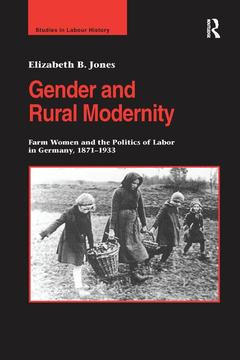Gender and Rural Modernity Farm Women and the Politics of Labor in Germany, 1871–1933 Studies in Labour History Series
Auteur : Jones Elizabeth B.

Date de parution : 11-2016
15.6x23.4 cm
Date de parution : 02-2009
15.6x23.4 cm
Thèmes de Gender and Rural Modernity :
Mots-clés :
Farm Wives; farm; Farm Women; wives; Der Landwirtschaft; women; Social Welfare Reformers; family; Agricultural Labor Shortage; farms; Saxon Farms; medium; Medium Sized Family Farms; sized; Young Rural Women; agricultural; Droste Verlag; experts; Rural Flight; social; Rural Housewives; Von Brand; German Family Farms; Deputy Commanding General; Leipziger Neueste Nachrichten; Hundert Jahre; Women’s Agricultural Labor; Von Rundstedt; Der Landwirtschaftskammer; Rural League; Rural Modernity; Farm Daughters; Root Crop Cultivation; Farm Women’s Work; Family Farms
